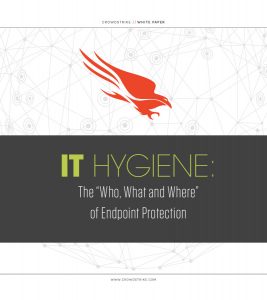Vier “zero-day”-kwetsbaarheden in Microsoft Exchange-servers zijn in het wild gebruikt in “chained” aanvallen.
bron: Tenable
Achtergrond
Op 2 maart publiceerde Microsoft out-of-band advisories om vier zero-day kwetsbaarheden in Microsoft Exchange Server aan te pakken die actief en in het wild zijn misbruikt.
| CVE | Vulnerability Type | CVSSv3 |
|---|---|---|
| CVE-2021-26855 | Server-Side Request Forgery (SSRF) | 9.1 |
| CVE-2021-26857 | Insecure Deserialization | 7.8 |
| CVE-2021-26858 | Arbitrary File Write | 7.8 |
| CVE-2021-27065 | Arbitrary File Write | 7.8 |
In een blogbericht schrijft Microsoft de exploitatie van deze lekken toe aan een state-sponsored groep die HAFNIUM wordt genoemd. De groep heeft zich in het verleden gericht op in de VS gevestigde instellingen, waaronder “onderzoekers op het gebied van infectieziekten, advocatenkantoren, instellingen voor hoger onderwijs, defensieaannemers, denktanks en NGO’s”, aldus de Microsoft blog. Onderzoekers van Volexity publiceerden ook een blogpost over deze aanval en noemden het Operation Exchange Marauder.
De kwetsbaarheden zijn van invloed op de on-premises versie van Microsoft Exchange Server. Microsoft Exchange Online wordt niet getroffen door deze kwetsbaarheden.
Analyse
CVE-2021-26855 is een SSRF-kwetsbaarheid in Microsoft Exchange Server. Een niet-geauthenticeerde aanvaller kan op afstand dit lek uitbuiten door een speciaal bewerkt HTTP-verzoek naar een kwetsbare Exchange Server te sturen. Om dit lek te misbruiken, moet de kwetsbare Exchange Server volgens Microsoft in staat zijn om niet-vertrouwde verbindingen via poort 443 te accepteren. Succesvolle exploitatie van dit lek zou de aanvaller in staat stellen zich te authenticeren op de Exchange Server.
Volexity, een van de drie groepen die CVE-2021-26855 hebben ontdekt, legt in zijn blog uit dat het heeft gezien hoe een aanvaller deze kwetsbaarheid misbruikte om “de volledige inhoud van verschillende mailboxen van gebruikers te stelen”. Het enige dat een aanvaller nodig heeft om het lek te misbruiken is het IP-adres of de volledig gekwalificeerde domeinnaam (FQDN) van een Exchange-server en het e-mailaccount dat ze willen aanvallen.
CVE-2021-26857 is een onveilige deserialisatiekwetsbaarheid in Microsoft Exchange. Het euvel bevindt zich met name in de Exchange Unified Messaging Service, die naast andere functies ook voicemailfunctionaliteit mogelijk maakt. Om dit lek te misbruiken, moet een aanvaller geauthenticeerd zijn op de kwetsbare Exchange Server met beheerdersrechten of eerst een ander lek misbruiken. Succesvolle exploitatie zou de aanvaller privileges geven voor het uitvoeren van willekeurige code als SYSTEM.
CVE-2021-26858 en CVE-2021-27065 zijn beide arbitraire “write” lekken in bestanden in Microsoft Exchange. Deze kwetsbaarheden zijn post-authenticatie, wat betekent dat een aanvaller zich eerst moet authenticeren bij de kwetsbare Exchange Server voordat hij deze kwetsbaarheden kan misbruiken. Dit kan worden bereikt door CVE-2021-26855 uit te buiten of door in het bezit te komen van gestolen beheerdersgegevens. Eenmaal geauthenticeerd, zou een aanvaller willekeurig kunnen schrijven naar elk pad op de kwetsbare server.
Op de blog van Microsoft staat dat de onderzoekers hebben gezien hoe HAFNIUM-bedreigers deze zwakke plekken hebben misbruikt om webshells op gerichte systemen te implementeren en zo aanmeldingsgegevens en mailboxgegevens te stelen. De aanvallers waren naar verluidt ook in staat om het offline adresboek (OAB) voor Exchange te bemachtigen. Het bezit van deze informatie zou nuttig zijn voor een vastberaden bedreiger die verdere verkenningsactiviteiten uitvoert op zijn doelwit.
Inbraken gedetecteerd die teruggaan tot tenminste januari 2021
Ondanks de eerste bekendmaking op 2 maart zegt Steven Adair, voorzitter van Volexity, dat zijn team sinds januari heeft gewerkt aan “verschillende inbraken” waarbij deze kwetsbaarheden betrokken waren.
De blogpost van Volexity bevat een videodemonstratie waarin de succesvolle exfiltratie wordt getoond van individuele e-mails die zijn gekoppeld aan een beoogde gebruiker zonder authenticatie. Dit werd bereikt door het verzenden van een HTTP POST verzoek met een XML SOAP payload naar de kwetsbare Exchange Server’s Web Services API.
Andere threat actors maken naar verluidt in het wild gebruik van deze zwakke plekken
Volgens een Twitter thread van ESET research, hebben “verscheidene cyberspionagegroepen” – die niet alleen de Verenigde Staten als doelwit hebben, maar ook andere landen zoals Duitsland, Frankrijk, Kazachstan, en meer – de SSRF kwetsbaarheid (CVE-2021-26855) actief uitgebuit.
Microsoft heeft ook drie ongerelateerde kwetsbaarheden in Exchange Server verholpen
Naast de vier zero-day kwetsbaarheden heeft Microsoft ook drie niet-gerelateerde kwetsbaarheden voor de uitvoering van code op afstand (remote code execution, RCE) in Microsoft Exchange Server gepatcht, die hen door beveiligingsonderzoeker Steven Seeley waren geopenbaard.
| CVE | CVSSv3 |
|---|---|
| CVE-2021-26412 | 9.1 |
| CVE-2021-26854 | 6.6 |
| CVE-2021-27078 | 9.1 |
Proof of Concept
Op het moment dat dit blogbericht werd gepubliceerd, was er nog geen proof-of-concept beschikbaar voor een van de vier zero-day kwetsbaarheden die Microsoft heeft bekendgemaakt.
Oplossing
Microsoft heeft op 2 maart out-of-band patches uitgebracht voor Microsoft Exchange Server die alle vier de kwetsbaarheden verhelpen die in het wild zijn uitgebuit, evenals de drie niet-gerelateerde kwetsbaarheden.
| Exchange Server Version | Knowledgebase Article |
|---|---|
| 2010 Service Pack 3 | KB5000871 |
| 2013 Cumulative Update 23 | KB5000871 |
| 2016 Cumulative Update 18 | KB5000871 |
| 2016 Cumulative Update 19 | KB5000871 |
| 2019 Cumulative Update 7 | KB5000871 |
| 2019 Cumulative Update 8 | KB5000871 |
Zowel Microsoft als Volexity hebben in hun respectieve blogposts indicators of compromise (IOC’s) voor de aanvallen gedeeld.
Er zijn enkele mitigaties die organisaties kunnen toepassen totdat patchen haalbaar is, zoals het beperken van onvertrouwde verbindingen met Exchange Server. Tenable raadt echter alle organisaties die Exchange Server on-premises implementeren sterk aan om deze patches zo snel mogelijk toe te passen. We verwachten dat aanvallers, zodra een werkend proof-of-concept beschikbaar is, zonder onderscheid gebruik zullen gaan maken van deze fouten.
Getroffen systemen identificeren
Wij zullen onze MSS klanten helpen met het identificeren van eventueel kwetsbare systemen. Andere organisaties kunnen deze identificeren met bijvoorbeeld Tenable Nessus. Een lijst van Tenable plugins om deze kwetsbaarheden te identificeren zal hier verschijnen zodra ze worden vrijgegeven.






